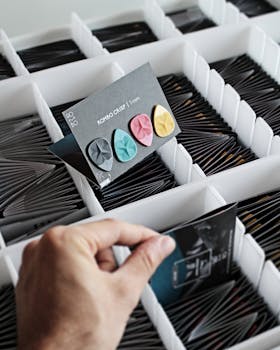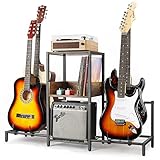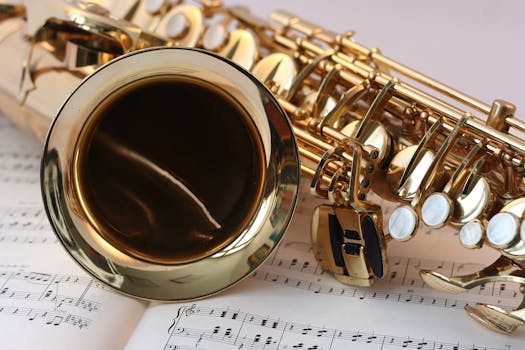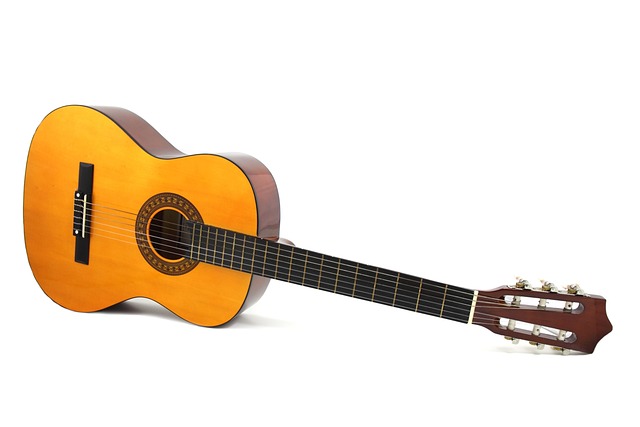Musical Instrument Storage
As an Amazon Services LLC Associates Program participant, we earn advertising fees by linking to Amazon, at no extra cost to you.
Best Storage Solutions for Different Instruments
Each musical instrument has unique needs when it comes to storage. Choosing the right storage solution not only protects your investment but also helps maintain its performance. For grand pianos, climate-controlled environments are essential. Pianos are sensitive to temperature and humidity changes, so using a dedicated piano cover and placing a humidifier nearby can prevent damage.
Electric guitars deserve special attention as well. A quality hard case is necessary for protecting the instrument from physical shock. For those of us with multiple guitars, consider a wall-mounted rack or a custom guitar stand that allows for easy access and display. Keeping electronics at room temperature will prolong their lifespan.
Violins stand out with their own requirements. A sturdy case with an interior that provides cushioning is ideal. Adding a hygrometer to monitor humidity levels aids in maintaining the perfect environment for the wooden body of the violin. This care will keep the sound quality top-notch.
For wind instruments like flutes and clarinets, the best storage is a hard case and a cleaning kit. They should be disassembled and dried before storage to prevent moisture buildup. Cases with pockets for mouthpieces and cleaning supplies can streamline the process.
Drum sets require a combination of storage strategies. Use protective covers for each drum and consider a rack system for cymbals and hardware. Storing them in a cool, dry place is imperative to avoid warping. For smaller percussion instruments, drawer organizers or dedicated storage bins can work wonders.
Regardless of the instrument, the goal is to create a safe, organized space for your music. Finding the right storage solution not only preserves the integrity of your instruments but also enhances your overall musical experience.
The Role of Cases and Holders in Instrument Preservation
Proper cases and holders are essential for preserving the integrity and longevity of musical instruments. Whether you’re a pianist with a grand piano, a guitarist with a prized electric guitar, or a violinist with a delicate fiddle, the means of protection you choose can greatly impact your instrument’s condition.
For string instruments like violins and cellos, a high-quality case provides insulation against temperature and humidity fluctuations that can warp wood and damage varnish. Investing in a hard case with proper padding is non-negotiable for serious musicians. It’s not just about transport; it’s about maintaining your instrument’s playability and value.
For wind instruments such as flutes and trumpets, holders are just as critical. Keeping these instruments in their cases when not in use prevents dirt and moisture accumulation, which can lead to costly repairs. A good case not only shields the instrument from physical damage but also offers a designated space where you can store essential accessories like reeds and cleaning kits.
Drum kits also require thoughtful consideration. While a full case may not be practical, investing in protective bags or covers can prevent dust and scratches. When you’re spending considerable time and money on drums, don’t skimp on protection. Proper holders for cymbals, sticks, and other components facilitate organized storage, ensuring that everything is in its place and ready to play.
Furthermore, the aesthetic aspect shouldn’t be overlooked. Display cases for instruments can transform a musical piece into art that enhances your space, while still keeping it safe. Showcasing an instrument in a manner that protects it demonstrates respect for its craftsmanship and history.
Ultimately, whether you favor grand pianos, electric guitars, or percussive pieces, the significance of selecting the right case or holder cannot be understated. Each instrument has unique needs and characteristics, and your choice of protective gear will directly influence its preservation and performance.
Types of Musical Instruments and Their Storage Needs
Understanding the storage needs of musical instruments is critical for maintaining their sound quality and longevity. Each type of instrument has distinct requirements that must be considered.
For instance, grand pianos require a stable, climate-controlled environment to prevent changes in humidity and temperature from damaging the wood and strings. Ideally, they should be housed in a room with consistent temperature between 68-72°F and humidity around 40-60%. Some pianists invest in a piano cover and humidity control system to protect against fluctuations.
Electric guitars are relatively low-maintenance, but they thrive when stored in their cases or on stands to avoid unwanted dings and scratches. A hard case is recommended for long-term storage to protect against dust and temperature changes. Always remember to loosen the strings a bit if storing for an extended period to relieve pressure on the neck.
Woodwind instruments, like flutes and clarinets, have unique needs. These should be cleaned and dried after use, and stored in a case to avoid warping or damage. The case often includes a cleaning rod or cloth to maintain hygiene and performance.
Brass instruments, such as trumpets and trombones, also prefer cases for storage. Regular cleaning and maintenance are vital to prevent corrosion and buildup inside the instrument. Utilizing a soft cloth to wipe down the surface and a special cleaning kit can keep them in top condition.
Drum sets, typically made of wood or metal, need consideration as well. They should be stored in a dry, cool area, ideally disassembled and placed in cases or bags designed to fit the individual components. This prevents scratches and avoids exposing them to harsh elements.
Lastly, string instruments like violins and cellos need cases that provide cushioning and temperature regulation. Their storage should always prioritize a firm but gentle hold to prevent damage to the delicate wood and strings. Keeping these instruments in their cases when not in use is crucial.
Overall, prioritizing proper storage according to specific instrument types ensures their performance and durability over time. Each instrument has unique characteristics that demand mindful storage solutions.
Storage of musical instruments for Dartmouth students is managed through the Hopkins Center. … Site or Accessibility Feedback. Connect With Us. Facebook.
Nov 17, 2020 – Explore Carolyn Visco's board "instrument storage" on Pinterest. See more ideas about guitar room, guitar storage, home music rooms.
100 Instrument storage ideas | guitar room, guitar storage, home …
Step 2: Go to Instrument Storage Office to pick up instrument during posted office hours. … Use of Fredonia School of Music musical instruments are to be …
… Musician Chairs · Student Chair · Musician Chair · Student / Musician Chair … Instrument Storage. Add to cart. Close. View as Grid List. 14 items. Page. You're …
The Music Program has instrument storage lockers available for rental. Visit … This site uses cookies to offer you a better browsing experience.
Phillips B-112 | Corcoran School of the Arts & Design | Columbian …
DIY Storage Solutions for Musicians
Musicians have unique storage needs, and finding creative ways to organize gear is essential. My own experience has taught me that a little DIY ingenuity can result in practical storage solutions that keep instruments safe and readily accessible.
First off, consider using wall-mounted shelving specifically designed for instruments. Heavy-duty brackets and shelves can securely hold guitars, while a custom shelf can store pedals and small gear. I love being able to grab my guitar without having to dig through a pile of cases.
Another idea is to repurpose furniture like an old dresser. Drawers can be transformed into storage for cables, sheet music, and even microphones. A bit of paint can turn a piece of worn furniture into an attractive storage solution that complements your personal style.
Using PVC pipe can also be a game-changer for cable management. Cut sections of PVC to create a cable holder; simply mount it on the wall and slide in your cables. It keeps everything tidy and prevents tangling.
For percussionists, installing pegboards in the studio works wonders. I hang all my drumsticks, mallets, and even small accessories using hooks; it saves space and keeps everything neatly displayed.
Don’t overlook the power of labels. Labeling each storage area or box ensures I find what I need quickly, saving valuable time during rehearsals. For these reasons, organization is key to maintaining a productive rehearsal environment.
Creative DIY storage solutions not only maximize your space but also reflect your personality as a musician. The effort you put into organizing your gear pays off tenfold in efficiency and peace of mind.
Common Mistakes in Instrument Storage
One of the biggest errors musicians make is failing to consider temperature and humidity. Instruments like woodwinds and strings are made from sensitive materials that can warp or crack if left in extreme conditions. I’ve seen too many vintage guitars ruined because someone stored them in a damp basement or a hot attic. Maintaining a stable environment is crucial.
Another common mistake is improper cases. Not all instruments come with their perfect fit when stored. I can’t stress enough how essential it is to invest in good quality cases that provide adequate padding and protection. For instance, drum kits need their hardware secure; a loose cymbal can dent expensive surfaces. If you’re using a gig bag, be doubly sure it’s well-cushioned.
Ignoring regular maintenance also ranks high on my list of mistakes. Instruments require periodic tuning and inspection, and neglect leads to deterioration. For example, I have seen pianos suffer from humidity issues because the lid was left open and dust built up over time. A simple monthly check can prevent this.
Overstuffing storage areas is another misstep. While it may seem like a good idea to stack as many instruments as possible, this can lead to scratches, scuffs, or even breakages. I’ve witnessed fragile flutes being crushed under the weight of an amplifier. Keep your collection organized and give each instrument its space.
Lastly, many musicians overlook securing their instruments. Locks and security systems are vital, especially in shared spaces. I once had a friend lose her electric guitar because it wasn’t properly secured in a crowded practice room. A little precaution goes a long way.
Protecting Your Acoustic Instruments: Tips and Tricks
Investing in a quality case is your first line of defense. A hard case is essential for protecting your instrument from physical damage during transport. Soft cases are great for lighter travel, but they can’t compete with the sturdiness of a hard case in critical situations.
Humidity control is vital for wooden instruments. Acoustic guitars, violins, and pianos are particularly susceptible to changes in humidity. I use a hygrometer to monitor levels in my storage space, aiming for humidity between 40-60%. When conditions are too dry, I add a humidifier; when it’s too humid, a dehumidifier comes into play.
Regular maintenance can save you from costly repairs. I take my instruments to a professional for annual check-ups. A small investment in regular servicing can prevent major issues down the line. Changing strings, checking for cracks, and adjusting plays are crucial steps.
Always keep your instruments covered. Dust and sunlight can wreak havoc, leading to tarnish and discoloration over time. I use dust covers to shield my instruments when they’re not in use. Having a dedicated, clean space for your acoustic instruments is imperative.
Learn how to properly handle your instruments. Avoid using too much force when playing or tuning, as excessive pressure can lead to cracks or misalignment. Gentle handling goes a long way in maintaining your instrument’s integrity.
Be mindful of temperature fluctuations. Extreme heat can warp wood, while cold can cause it to become brittle. Keeping instruments away from direct heating sources or cooling vents is a must. Ideally, I keep my instruments in a climate-controlled environment.
Invest in quality accessories. Cheap strings, rosin, or cleaning products can cause harm instead of preserving your instrument. Always choose high-quality products for cleaning, maintenance, and replacement to ensure longevity.
Finally, every musician develops their own unique set of habits and preferences. Your instruments deserve the best care. Consider these tips as a part of your routine to keep your acoustic instruments in peak condition.
Maintaining Your Instruments During the Off-Season
During the off-season, it’s crucial to check and maintain your instruments to ensure they stay in top condition. For string instruments like violins and cellos, be sure to loosen the strings to relieve tension on the neck and body. Store them in a climate-controlled environment to prevent warping or cracking due to humidity changes.Regular cleaning is essential; use a soft cloth to wipe down the surface, removing rosin build-up and dirt. For woodwind instruments, disassemble them carefully and clean each part, paying close attention to pads and keys—moisture can cause pads to wear faster than usual when stored improperly.
Brass players should also clean their instruments after every season. I recommend soaking valves and slides in warm, soapy water, followed by a thorough rinse. Apply a thin layer of oil to moving parts to keep everything functioning smoothly. Don’t overlook the case; keep it clean and moisture-free to protect your instrument further.
When it comes to guitars, checking the neck relief is vital. Keep the instrument in a stable environment, away from temperature spikes. I suggest cleaning the fretboard with a suitable cleaner and conditioning it with a fretboard oil. Re-string your guitar during the off-season—this ensures you have fresh strings ready for performance time.
For keyboards and amps, dust accumulation can affect performance. Use a microfiber cloth to wipe down the surfaces and ensure cords remain untangled and free of frays. Testing the functionality of electronic parts is wise; make sure everything operates as it should before the season begins.
By committing to these maintenance habits during the off-season, I can ensure my instruments remain in excellent shape, ready to create beautiful music when the time comes.
Recommendations for Storing Rare Instruments
Tips for properly storing rare musical instruments to maintain their condition and value.
- Keep instruments in a climate-controlled environment. Extreme temperatures and humidity can damage wood, metal, and the delicate finishes.
- Use soft cases or padded gig bags. These provide better protection compared to hard cases, especially if your instrument is delicate.
- Avoid placing instruments in direct sunlight. UV rays can fade finishes and warp materials over time.
- Store your instruments upright or securely suspended. Placing them flat can lead to warping or damage to the neck and body.
- Regularly clean and oil strings and bodies. Dust and grime can accumulate, affecting sound quality and longevity.
- Keep detailed records of each instrument. Documenting serial numbers, purchase info, and maintenance history can help with valuation and repairs.
- Use a silica gel or dehumidifier. This helps control moisture levels, reducing the chance of mold and mildew.
- Avoid over-packing storage spaces. Instruments need some breathing room to prevent scrapes and knocks.
Hopkins Center Instrument Storage Requests. Storage of musical instruments for Dartmouth students is managed through the Hopkins Center. Please note: Due to the …
Step 2: Go to Instrument Storage Office to pick up instrument during posted office hours. … Use of Fredonia School of Music musical instruments are to be …
Instruments While the MIT Music & Theater Arts Events Office has a small inventory of instruments available for loan to students who participate in MTA …
Instruments and Storage | Massachusetts Institute of Technology
Practice Rooms, Instrument Lockers, and Music Department Spaces. There are fifteen practice rooms in the music building; all of them have either an upright or a …
Practice Rooms, Instrument Lockers, and Music Department Spaces …
Humidity and Temperature Control for Instrument Longevity
Maintaining the right humidity and temperature is essential for the longevity of musical instruments. Variations in these environmental factors can significantly impact the sound, playability, and overall integrity of your cherished instruments.
The ideal humidity level for most stringed instruments, like violins and guitars, hovers around 40% to 60%. Too much humidity can lead to swollen wood, while too little can cause cracks and warping. Wooden instruments absorb moisture from the air, and fluctuations can affect their tuning and tone. This is particularly critical for pianos, where the action and resonance can be compromised if the environment is not stable.
Temperature also plays a significant role. Instruments should ideally be stored in a climate-controlled environment, with temperatures around 68°F to 75°F (20°C to 24°C). Extreme temperatures can cause glue joints to weaken, finish to crack, and mechanical parts to malfunction. For electric instruments, exposure to heat can even damage pickups and electronics. Therefore, acute temperature changes—like moving from a hot car to an air-conditioned room—should be avoided.
Using humidifiers or dehumidifiers can effectively regulate humidity levels. Investing in hygrometers to monitor these levels is a wise decision. For pianos, I recommend ensuring they are placed away from windows, radiators, and air vents, as these can create erratic conditions. Similarly, string players should consider travel cases with built-in humidification systems to protect their instruments during transport.
For woodwind instruments, maintaining a consistent humidity level is essential to prevent pads from sticking or drying out. Regular maintenance that focuses on the environmental conditions under which you store and play your instruments will pay off in the long run. Protecting these intricate machines from the elements is part of being a responsible musician.
Ultimately, taking these precautions will ensure that your musical instruments remain in peak condition, allowing them to produce beautiful sounds for years to come.
How to Safely Store Electric Instruments
Storing electric instruments requires careful consideration to maintain their functionality and longevity. Start by ensuring your instruments are clean and dry before putting them away. Dust can accumulate and potentially scratch finishes or interfere with electronic components.
Proper humidity control is essential; aim for a relative humidity level between 40% and 60%. Too much moisture can lead to corrosion, while low humidity can cause wood to crack in stringed instruments. Using a hygrometer can help monitor these levels.
Always store electric instruments in their cases. Hard cases provide the best protection against physical damage, while padded gig bags can be used for more portable storage. Avoid placing instruments directly on surfaces or hanging them without support, as this can lead to accidents.
Temperature matters too. Keep your instruments away from direct sunlight, heaters, or air conditioning vents. Extreme temperatures can warp wood and damage electronics. A dedicated closet or storage room with stable conditions is ideal.
For electric guitars and similar instruments, string tension should be adjusted when storing for long periods. Tuning them down slightly can relieve pressure on the neck and prevent warping. For keyboards and synthesizers, using dust covers will help keep them clean and dust-free.
Finally, check your instruments regularly. Look for signs of wear or damage, and make any necessary repairs promptly. This proactive approach can save you significant headaches in the long run.
Essential Storage Supplies for Musicians
These storage supplies are non-negotiable for any serious musician looking to protect their gear and keep everything organized.
- Instrument cases: A sturdy case is essential for protecting your instrument from damage during transportation. Invest in a quality hard case or padded gig bag tailored to your specific instrument.
- Music stands: You need a reliable music stand that is both portable and sturdy, ensuring that your sheets stay in place whether you’re practicing at home or performing at a venue.
- Cable organizers: Keeping your cables untangled is a must. Use cable ties or organizers to keep them from getting into a knot, which can be a huge hassle during a performance.
- Sheet music folders: A good folder helps protect your sheets from wear and tear. Look for one that’s lightweight and can carry a good number of sheets for easy access.
- Storage bins: For miscellaneous accessories like picks, tuners, and metronomes, storage bins are crucial. Clear plastic bins help you see what’s inside without digging.
- Humidity control packs: If you play an instrument sensitive to moisture, keep it stable with humidity control packs in your cases or storage spaces to prevent damage.
- Instrument polishing cloths: Regular maintenance is key; use polishing cloths to keep your instrument looking and sounding its best.
Factors Affecting Instrument Durability
Understanding what influences the lifespan and resilience of musical instruments is crucial for any musician.
- Material Quality: The choice of materials significantly impacts durability. For instance, solid woods for string instruments can last longer than laminates, while high-grade metals for brass instruments resist corrosion better.
- Maintenance: Regular care, including cleaning and proper storage, can extend an instrument’s life. Neglect can lead to deterioration, affecting sound quality and playability.
- Climate and Environment: Extreme temperatures and humidity levels can warp wood or rust metal parts. Instruments kept in stable conditions are generally more durable.
- Usage Frequency: Instruments used daily will naturally wear out faster than those occasionally played. How often you practice can dictate how long an instrument remains in top shape.
- Design and Construction: High-quality craftsmanship and smart design choices enhance durability. For example, a well-designed guitar neck can withstand years of tuning without warping.
- Transport and Handling: How an instrument is handled and transported can make or break its longevity. Using hard cases and being cautious during transport can prevent unnecessary damage.
When to Seek Professional Storage Services
If you’re storing valuable musical instruments, especially high-end ones like grand pianos, cellos, or vintage guitars, professional storage services are worth considering. The climate and condition in which these instruments are stored can significantly impact their longevity and quality. For delicate instruments, maintaining a consistent temperature and humidity level is crucial. If your home lacks a controlled environment, that’s a strong indication that you should seek professional storage.
Another reason to consider professional storage is during relocations or significant life changes. Whether you’re moving across town or across the country, safely packing and transporting instruments can be a headache. They have the expertise, materials, and resources to ensure your instruments are handled properly, reducing the risk of damage.
If your collection is growing, and you find it challenging to keep everything organized at home, professional storage can also provide a solution. Having a dedicated space for your instruments not only keeps them safe but makes it easier to access and maintain them in optimal condition.
Even if you’re fortunate to have adequate space and proper environmental conditions, consider the security of your instruments. If you live in a neighborhood prone to theft or if your home is often filled with guests or workers, a secure storage facility can give you peace of mind. These facilities typically have advanced security features like surveillance cameras and controlled access.
If you’re a musician who frequently travels for gigs or tours, professional storage can be invaluable. Instead of lugging your instruments around or leaving them unattended, you can store them securely while you’re away. This option also works if you play for multiple groups and need temporary storage for certain instruments.
Sometimes, less obvious circumstances can lead you to seek professional services. If you’ve inherited a collection or acquired instruments from a sale or trade that you aren’t ready to use yet, professional storage can keep them safe until you’re prepared to give them the care and attention they deserve. This is especially relevant for older or more fragile instruments that could deteriorate without proper care.
Ultimately, weighing the value of your instruments against the costs of storage services can guide your decision. If you have anything you’re not willing to risk losing or damaging, it’s time to reach out to professionals.
Understanding the Importance of Musical Instrument Storage
Proper storage of musical instruments is essential for maintaining their functionality and longevity. In my experience, neglecting instrument care can lead to serious issues such as warping, loss of tuning, and even irreparable damage. Each type of instrument has specific needs. For instance, wooden instruments like violins and pianos are susceptible to humidity changes. Storing these instruments in environments with controlled humidity levels is crucial. Flutes, trumpets, and other brass instruments need to remain dry to prevent tarnishing and corrosion, so they require storage away from damp areas.
Electric guitars, while generally more resilient, still benefit from being kept in hard cases that protect them from physical harm and temperature fluctuations. I’ve seen instruments left out of their cases suffer from unintentional accidents that compromise their quality. The safest way to store them is upright or in cases designed specifically for their shape, preventing any undue pressure on the neck.
Furthermore, regular maintenance and cleaning are parts of proper storage that shouldn’t be overlooked. Dust and dirt can accumulate quickly, affecting sound quality and playability. For string instruments, wiping down the strings and body is key to preventing grime buildup, while brass players should clean their instruments regularly to remove moisture and residue.
Labeling and organizing your storage space can also make a significant difference. Knowing exactly where each instrument and accessory is can save time and reduce the risk of accidental damage. I personally use labeled bins for smaller items like reeds and straps, ensuring everything is precisely where it should be.
Investing in quality storage solutions can enhance the life of your instruments significantly. Whether it’s a premium case for your grand piano or a sturdy rack for your drum set, these measures pay off. In the long run, taking the time to properly store and care for your musical instruments leads to greater enjoyment and performance.
What is the best way to store a drum set?
The best way to store a drum set is to disassemble it as much as possible. This means removing the drums from their stands and taking off the heads if space allows. Keep all components dry and free from dust. Use soft coverings or padded bags to protect each piece, especially the shells and hardware. Store the drums in a climate-controlled environment where temperature and humidity levels are consistent. Avoid extremes, as drastic changes can warp wooden shells and affect sound quality. Ensure that hardware is stored securely to prevent damage and loss. If you have a double-braced stand, collapse it rather than leaving it fully extended to reduce strain. For cymbals, using a dedicated cymbal bag can prevent cracking and scratching. Lastly, consider a dedicated storage rack or case specifically designed for drum sets. This will keep everything organized and accessible while ensuring its longevity.
How can I protect my guitar from humidity?
Humidity control is crucial for any guitar owner. I can’t stress enough how fluctuations in humidity can warp the wood, affect the neck relief, and even loosen glue joints. To start, invest in a quality hygrometer to monitor humidity levels. Ideally, you want to keep the environment between 40% and 60% humidity. Using a dehumidifier or humidity control system can help maintain these levels. I personally use a room dehumidifier that keeps my guitar area stable during the damp months.
When storing guitars, consider a hard case with a built-in humidifier. This protects against rapid changes and keeps everything in check. I also recommend using silica gel packs inside cases to absorb moisture, but remember to check and replace them regularly.
If you live in a particularly humid area, make it a habit to check your guitar’s condition frequently. Regular maintenance and care are essential to keep your guitar healthy for years to come.
What types of storage cases are recommended for violins?
For protecting your violin, I highly recommend three types of storage cases: soft cases, hard cases, and flight cases. Soft cases, or gig bags, are lightweight and ideal if you’re transporting your instrument for short distances. They’re easier to carry but provide less protection. Hard cases are crucial for serious musicians who need maximum protection from impacts and environmental factors. They are typically fitted with plush interiors and sturdy exteriors. Lastly, flight cases are designed for the rigorous demands of airline travel and extreme conditions. They provide heavy-duty protection but can be quite bulky and expensive. Ultimately, the choice of case depends on your travel habits and protection needs. Consider factors like weight, durability, and how often you will be on the move with your instrument.
How often should I check on my stored instruments?
I believe it’s essential to check on your stored instruments at least once every three months. Instruments like pianos and guitars can be sensitive to changes in temperature and humidity, which can lead to issues such as warping, cracking, or mold growth. Regular inspections will allow you to catch any problems early.
For string instruments particularly, I recommend checking the tension of the strings and looking for any signs of corrosion or wear. This ensures they’re always ready for use. For wind instruments, inspect pads and corks for any signs of deterioration or leaks.
Moreover, every six months, I suggest giving each instrument a more thorough check, including cleaning and servicing if necessary. Timely maintenance saves you from costly repairs and preserves the quality of your instruments.
What are the signs my instrument is not properly stored?
If your instrument is out of tune more often than usual, it’s a clear indication that it’s not stored properly. Changes in temperature and humidity can cause wood instruments to warp or crack. Watch for signs of wear like broken strings or damaged pads on woodwinds. If you notice rust on metal parts, it’s time to reevaluate your storage conditions. Additionally, dust accumulation can lead to tonal issues; regularly cleaning your instrument is non-negotiable. If you find that your instrument is frequently experiencing issues, chances are it’s not in its ideal environment.Look for indicators like mildew or a musty smell—these are signs of excessive moisture. For guitars and brass instruments, any signs of corrosion or tarnish suggest poor storage conditions. Pay attention to how your instrument behaves. Trust your instincts; a well-stored instrument should not present these problems.
Is it necessary to maintain temperature in storage areas?
Yes, maintaining the proper temperature in storage areas is critical for preserving musical instruments. Many instruments, such as woodwind and string instruments, are particularly susceptible to damage from extreme temperatures and humidity levels. For instance, a grand piano’s wood can warp if exposed to excessive heat or cold, leading to tuning issues and structural damage.
Electric guitars can also suffer from changes in temperature. The wood used in their construction can crack, and electronic components may malfunction if stored in non-ideal conditions.
For orchestral instruments like violins and cellos, humidity plays a significant role as well. An environment that is too dry can cause cracks in the wood, while excessive humidity can lead to mold growth and other forms of degradation.
This applies to percussion instruments too; drums can lose their sound quality if the shells are not kept in a climate-controlled area.
Overall, taking control of the environment where musical instruments are housed is not just sensible; it’s essential for their longevity and performance.
Proper storage is non-negotiable if you want your instruments to last. Temperatures, humidity, and light can wreak havoc on everything from wooden pianos to brass instruments. Invest in quality cases, and store them in climate-controlled spaces whenever possible.
Humidity control is vital for both acoustic and electric instruments. Excess moisture can warp wood, while too little can dry it out and cause cracks. Proper humidity levels ensure your instrument’s longevity and optimal sound quality.
**Choosing the right case for your instrument is non-negotiable.** It shields delicate components from physical damage and environmental factors. **When I invested in a hard case for my acoustic guitar, it paid off immensely during transport.** Don’t underestimate the value of proper protection!
I can’t stress enough how vital it is to regularly check your musical instruments. Routine maintenance might seem tedious, but it undeniably saves you from costly repairs down the line. A well-maintained instrument not only sounds better but also lasts longer, ensuring that your passion for music remains uninterrupted.
DIY solutions can truly shine when crafted with care and knowledge. Whether it’s fixing your guitar or building a soundproof room, precision matters. Overlooking details can lead to unwanted results. So, do your homework and ensure you understand the process.
Investing in professional storage services is essential for protecting rare instruments. These specialized facilities offer climate control and security, preventing damage from humidity, temperature fluctuations, and theft. Your precious collection deserves the best care available.
As an Amazon Services LLC Associates Program participant, we earn advertising fees by linking to Amazon, at no extra cost to you.







